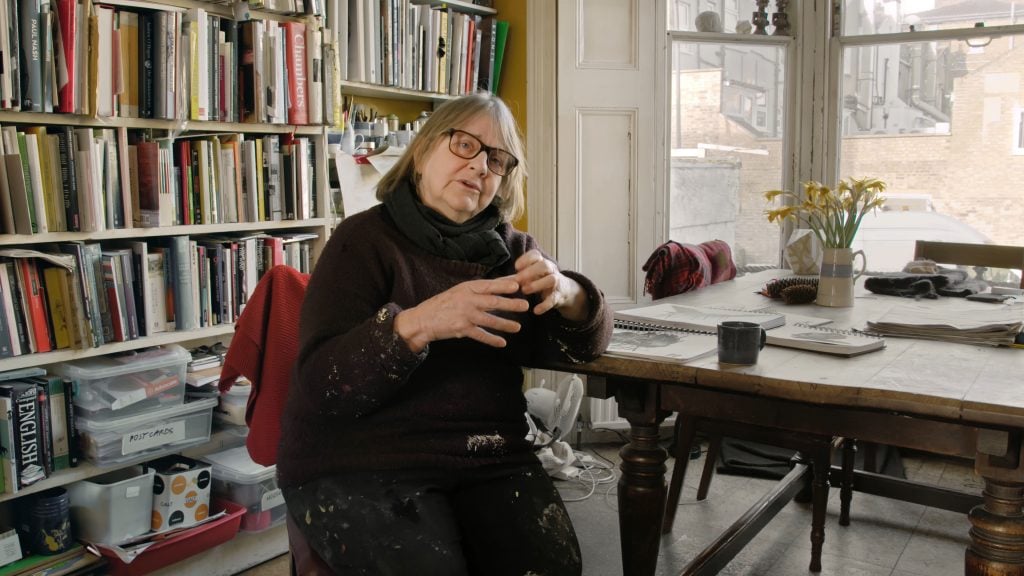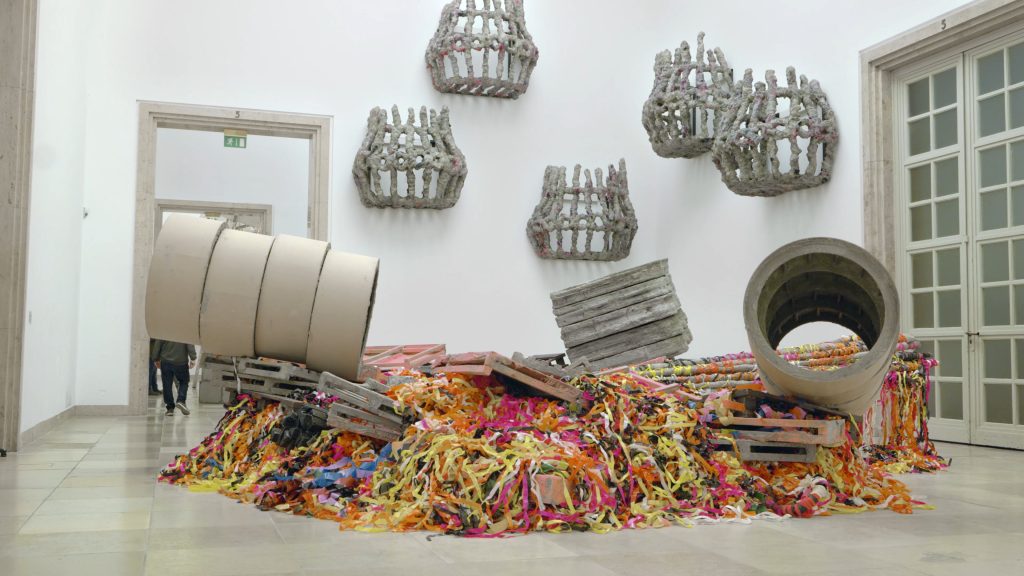Art World
‘The Creative Act Is a Deeply Private Experience’: Watch Sculptor Phyllida Barlow Make Hulking Works From Modest Materials
As part of a collaboration with Art21, hear news-making artists describe their inspirations in their own words.

As part of a collaboration with Art21, hear news-making artists describe their inspirations in their own words.

Caroline Goldstein

When British sculptor Phyllida Barlow attended art school in London in the 1960s, feminine materials were considered taboo, and students were encouraged to make monumental, assertive, and sleek works.
Anyone who has encountered a work by Barlow knows that her hulking, whimsical sculptures, made of plastic pipes, cardboard, fabrics, cement, and other humble objects, are just the opposite.
Barlow grew up with a creative mother who encouraged her to see the potential use of everything, teaching her to make dresses, knit, and to fashion dollhouse furniture out of matchboxes.
Despite the rigid teachings of art school, Barlow continued to pursue artmaking in her own distinctive style, preferring to make art for herself, despite what the establishment considered reputable.
In an exclusive interview with Art21 filmed as part of its “Extended Play” series, Barlow describes how her own negative experiences in art school helped shape her into a better teacher, explaining that her method has everything “to do with what I felt I had missed at art school.”

Production still from the Art21 “Extended Play” film, “Phyllida Barlow: Homemade.” © Art21, Inc. 2021.
For Barlow, art is intimate and personal, and she is most impressed with artists whose work is never exhibited.
“The novel that never gets published, should it never have been written? Of course it should be,” Barlow says. “It’s making a fantastic contribution to culture of the moment.” Art will exist even if no one sees it, Barlow says, adding: “the creative act is a deeply private experience.”
Right now at Haus der Kunst in Munich, a career retrospective of Barlow’s work is on view, bearing down on visitors who are confronted with the seemingly homemade bulky sculptures that block doorways and direct paths.
When the status quo is interrupted, viewers are able to take in the work as more than just an obstruction—it is also an addition to the space, forcing them to reconsider architecture and volume. The show’s title, “Frontier,” is a nod to the artist’s constant quest to reconsider what constitutes sculpture and to explore the possibilities of the medium.
Watch the video, which originally appeared as part of Art21’s Extended Play series, below. “Phyllida Barlow: Frontier” is on view at the Haus der Kunst through July 25, 2021.
This is an installment of “Art on Video,” a collaboration between Artnet News and Art21 that brings you clips of newsmaking artists. A new series of the nonprofit Art21’s flagship series Art in the Twenty-First Century is available now on PBS. Catch all episodes of other series like New York Close Up and Extended Play and learn about the organization’s educational programs at Art21.org